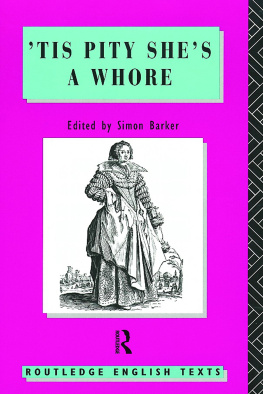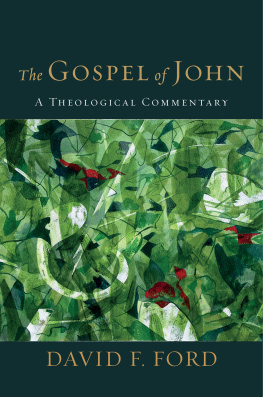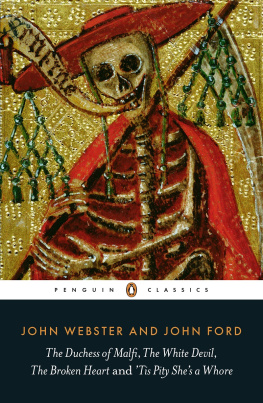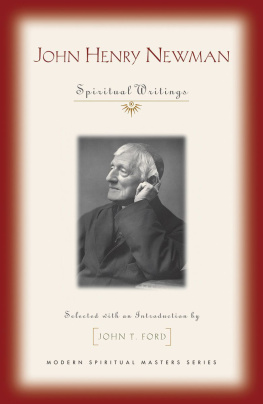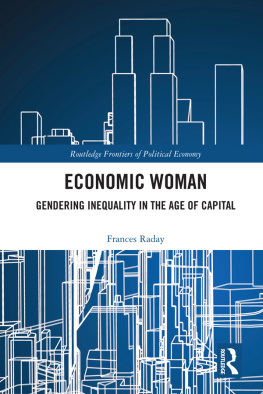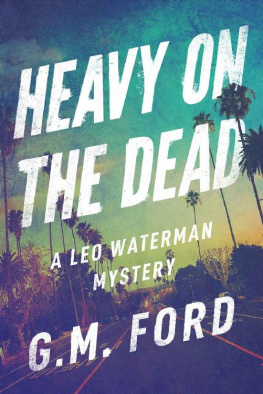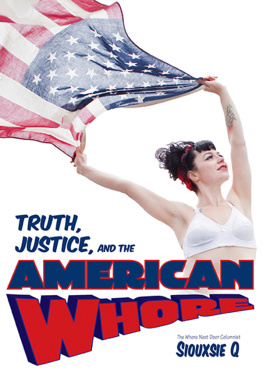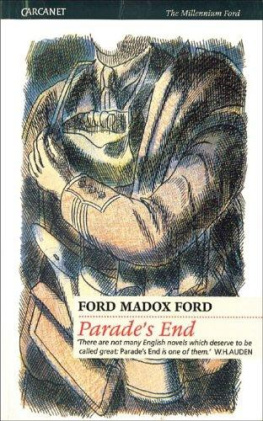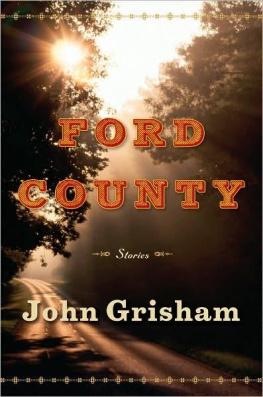John Ford - Tis pity shes a whore
Here you can read online John Ford - Tis pity shes a whore full text of the book (entire story) in english for free. Download pdf and epub, get meaning, cover and reviews about this ebook. year: 1997, publisher: Routledge, genre: Non-fiction. Description of the work, (preface) as well as reviews are available. Best literature library LitArk.com created for fans of good reading and offers a wide selection of genres:
Romance novel
Science fiction
Adventure
Detective
Science
History
Home and family
Prose
Art
Politics
Computer
Non-fiction
Religion
Business
Children
Humor
Choose a favorite category and find really read worthwhile books. Enjoy immersion in the world of imagination, feel the emotions of the characters or learn something new for yourself, make an fascinating discovery.
- Book:Tis pity shes a whore
- Author:
- Publisher:Routledge
- Genre:
- Year:1997
- Rating:3 / 5
- Favourites:Add to favourites
- Your mark:
- 60
- 1
- 2
- 3
- 4
- 5
Tis pity shes a whore: summary, description and annotation
We offer to read an annotation, description, summary or preface (depends on what the author of the book "Tis pity shes a whore" wrote himself). If you haven't found the necessary information about the book — write in the comments, we will try to find it.
Tis pity shes a whore — read online for free the complete book (whole text) full work
Below is the text of the book, divided by pages. System saving the place of the last page read, allows you to conveniently read the book "Tis pity shes a whore" online for free, without having to search again every time where you left off. Put a bookmark, and you can go to the page where you finished reading at any time.
Font size:
Interval:
Bookmark:

ROUTLEDGE ENGLISH TEXTS
GENERAL EDITOR JOHN DRAKAKIS
TIS PITY SHES A WHORE
John Ford
ROUTLEDGE ENGLISH TEXTS
GENERAL EDITOR JOHN DRAKAKIS
WILLIAM BLAKE: Selected Poetry and Prose ed. David Punter
EMILY BRONT: Wuthering Heights ed. Heather Glen
ROBERT BROWNING: Selected Poetry ed. Aidan Day
GEOFFREY CHAUCER: The Tales of the Clerk and the Wife of Bath ed. Marion Wynne-Davies
JOHN CLARE: Selected Poetry and Prose ed. Merryn and Raymond Williams
JOSEPH CONRAD: Selected Literary Criticism and the Shadow-Line ed. Allan Ingram
CHARLES DICKENS: Hard Times ed. Terry Eagleton
JOHN DONNE: Selected Poetry and Prose ed. T. W. and R. J. Craik
GEORGE ELIOT: The Mill on the Floss ed. Sally Shuttleworth
HENRY FIELDING:Joseph Andrews ed. Stephen Copley
BEN JONSON: The Alchemist ed. Peter Bement
D. H. LAWRENCE: Selected Poetry and Non-fictional Prose ed. John Lucas
ANDREW MARVELL: Selected Poetry and Prose ed. Robert Wilcher
JOHN MILTON: Selected Poetry and Prose ed. Tony Davies
WILFRED OWEN: Selected Poetry and Prose ed. Jennifer Breen
ALEXANDER POPE: Selected Poetry and Prose ed. Robin Sowerby
PERCY BYSSHE SHELLEY: Selected Poetry and Prose ed. Alasdair D. F. Macrae
SPENCER: Selected Writings ed. Elizabeth Porges Watson
OSCAR WILDE: The Importance of Being Earnest ed. Joseph Bristow
WILLIAM WORDSWORTH: Selected Poetry ed. Phillip Hobsbaum
BYRON: Selected Poetry and Prose ed. Donald A. Low
TENNYSON: Selected Poetry ed. Norman Page
TIS PITY
SHES A WHORE
John Ford
Edited by Simon Barker

LONDON AND NEW YORK
First published 1997
by Routledge
11 New Fetter Lane, London EC4P 4EE
Simultaneously published in the USA and Canada
by Routledge
29 West 35th Street, New York, NY 10001
This edition published in the Taylor & Francis e-Library, 2001.
1997 Simon Barker
All rights reserved. No part of this book may be reprinted or reproduced or utilized in any form or by any electronic, mechanical, or other means, now known or hereafter invented, including photocopying and recording, or in any information storage or retrieval system, without permission in writing from the publishers.
British Library Cataloguing in Publication Data
A catalogue record for this book is available from the British Library
Library of Congress Cataloging in Publication Data
A catalogue record for this book has been requested
ISBN 0-415-04947-4 (Print Edition)
ISBN 0-203-13494-X Master e-book ISBN
ISBN 0-203-17569-7 (Glassbook Format)
This edition of a play set in John Fords imaginary Parma is dedicated to the many friends I have made during frequent visits to the university in the real Italian city of Parma.
Contents
Acknowledgements
I should like to thank the following people for their help with this edition. Lisa Bartlett checked the text of the play for consistency and suggested some of the footnotes. Louise Peck of the library at King Alfreds College dealt cheerfully and methodically with my many requests for inter-library loans. Talia Rodgers and her colleagues at Routledge were encouraging and patient. Most of all, I am grateful to John Drakakis for his support as editor of the series and for introducing me to John Fords extraordinary dramatic writing.
Simon Barker
Cheltenham 1996
Introduction
THE AUTHOR
Little is known of the life of the author of Tis Pity Shes a Whore beyond a few dates and some records of his education and career. He was the second son of Thomas Ford, a wealthy Devonshire landowner who had married the niece of the influential Sir John Popham, the Lord Chief Justice of England from 1592 until 1607. There is a record of John Fords baptism at Ilsington in Devon on 17 April 1586 and of a John Ford, described as a gentleman from Devon, entering Exeter College, Oxford, in March 1601. Ford was admitted to the Middle Temple in November 1602 to continue his education and gain a legal training and although he was never called to the bar, it is generally assumed that he made a career in the law and remained in London until at least 1639, when his last play was published, possibly retiring to Devon just before the period of the Civil War. Evidence that he remained a resident of the Middle Temple whilst embarking upon a secondary career as a pamphleteer, poet and dramatist includes a note of his being reprimanded in 1617 for participating in a dispute with the Temple authorities over their strict dress code. As late as 1638 he is still described as Master John Ford of the Middle Temple in the introductory material attached to his play The Fancies Chaste and Noble. An allusion to Ford by William Hemminge in his elegy On Randolphs Finger (c.1632) is often quoted as an isolated comment on his personality:
Deep In a dumpe Iacke forde alone was gott
With folded Armes and Melancholye hatt.
That we know so little about Ford may be to our advantage as twentieth-century readers since we are less likely to fall into idle biographical speculation, searching for an interpretation of his creative work in a catalogue of anecdote and authorial background. To provide a context for a study of his work it is more rewarding to examine the intellectual circle in which he moved (and with whose members he collaborated on a number of occasions), the theatre for which his dramatic writing was designed, and the general issues and debates which influenced his art. An obvious point, but one worth emphasizing, is that John Fords life spanned a period dominated by the regimes of three monarchs under whom the London to which he had come to live in the closing years of Elizabeths reign was the scene of almost unprecedented political turmoil and uncertainty which had a marked effect upon its theatres and upon the intellectual life of those who generated the plays performed in those theatres. Much of the critical writing described in the essay which concludes this volume comments on Fords pessimism and the morally disturbing nature of his plays, none of which is surprising when the historical circumstances of their production is looked at in any detail. Jacobean and Caroline London was experiencing not only the political tension at Court and in Parliament which was to lead to war and revolution in the middle decades of the seventeenth century, but also an attendant re-examination of a range of social institutions and values to do with religion, sexuality and morality which can be seen as providing subject matter for the drama of the period.
A significant feature of the process by which the theatre of Fords day was provided with a steady supply of dramatic writing was that most writers chose to collaborate with others at some stage in their careers. The attribution of lines or scenes to a particular hand in plays which were often a joint effort has been a particular preoccupation for some modern scholars, but one which reveals more of their own assumptions about cultural production than anything about the assumptions that governed dramatic writing in the late sixteenth and early seventeeth centuries. In Fords time, notions of authorship and individual creativity were rather different from those which came to prevail in subsequent periods. What may be judged by modern scholars as a deficiency in production, particularly in the case of Shakespeare, where the uneven quality of some plays is occasionally blamed on his working with lesser mortals, could well have been seen as a positive virtue at the time. Collaboration resulted in a sharing of interests and influences in a community of ideas, just as the business of enacting the final product was a responsibility shared between actors and, finally, with the plays audiences.
Font size:
Interval:
Bookmark:
Similar books «Tis pity shes a whore»
Look at similar books to Tis pity shes a whore. We have selected literature similar in name and meaning in the hope of providing readers with more options to find new, interesting, not yet read works.
Discussion, reviews of the book Tis pity shes a whore and just readers' own opinions. Leave your comments, write what you think about the work, its meaning or the main characters. Specify what exactly you liked and what you didn't like, and why you think so.

